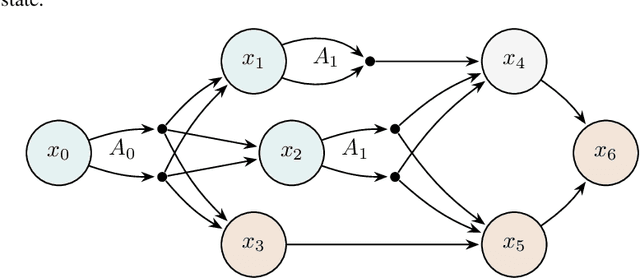Lorenzo Ciampiconi
A Primal-Dual Online Learning Approach for Dynamic Pricing of Sequentially Displayed Complementary Items under Sale Constraints
Jul 08, 2024



Abstract:We address the challenging problem of dynamically pricing complementary items that are sequentially displayed to customers. An illustrative example is the online sale of flight tickets, where customers navigate through multiple web pages. Initially, they view the ticket cost, followed by ancillary expenses such as insurance and additional luggage fees. Coherent pricing policies for complementary items are essential because optimizing the pricing of each item individually is ineffective. Our scenario also involves a sales constraint, which specifies a minimum number of items to sell, and uncertainty regarding customer demand curves. To tackle this problem, we originally formulate it as a Markov Decision Process with constraints. Leveraging online learning tools, we design a primal-dual online optimization algorithm. We empirically evaluate our approach using synthetic settings randomly generated from real-world data, covering various configurations from stationary to non-stationary, and compare its performance in terms of constraints violation and regret against well-known baselines optimizing each state singularly.
A survey and taxonomy of loss functions in machine learning
Jan 13, 2023



Abstract:Most state-of-the-art machine learning techniques revolve around the optimisation of loss functions. Defining appropriate loss functions is therefore critical to successfully solving problems in this field. We present a survey of the most commonly used loss functions for a wide range of different applications, divided into classification, regression, ranking, sample generation and energy based modelling. Overall, we introduce 33 different loss functions and we organise them into an intuitive taxonomy. Each loss function is given a theoretical backing and we describe where it is best used. This survey aims to provide a reference of the most essential loss functions for both beginner and advanced machine learning practitioners.
 Add to Chrome
Add to Chrome Add to Firefox
Add to Firefox Add to Edge
Add to Edge